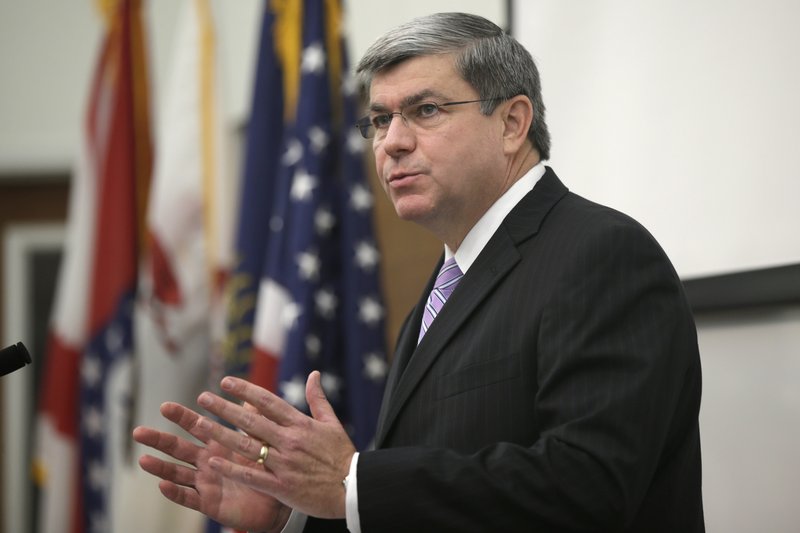PINE BLUFF -- Gubernatorial candidates Asa Hutchinson and Mike Ross each expressed a desire to improve the quality of the Arkansas workforce Wednesday, but they differed on how to do it.
The pair spoke separately to business, education and political leaders at a Delta Regional Authority conference about efforts to improve the number and quality of jobs available in the impoverished region.
"The Delta economy is constantly changing, and our workforce training needs to change with it," said Chris Masingill, the federal co-chairman of the Delta Regional Authority.
The agency's day-long seminar focused on efforts to develop new skills in the workforce and improve the proficiency of those who already have jobs with the hope of attracting new and high-tech businesses.
Ross said Arkansas needed to find a way to begin a child's education at an earlier age, reiterating his previous plan to expand pre-kindergarten programs for 4-year-olds.
"I think we need to start sooner and finish stronger," the Democratic candidate told seminar participants at the University of Arkansas at Pine Bluff.
Hutchinson, a Republican, targeted older students, saying two-year colleges needed to work with high schools to train workers.
"We can't wait 10 years to develop a skilled workforce," Hutchinson said.
He said he also supported pre-kindergarten programs but believed high school students should be able to enter a two-year college program and learn a trade.
He repeated a previous suggestion that training be developed regionally -- in high-tourism areas, for example, schools should offer hospitality classes. Industrial areas should train machinists and welders.
The Delta Regional Authority has called for merging programs that combine education and job skills and finding new ways to learn and improve living conditions in the region.
A theme emerged during the course of the seminar: If Arkansas hopes to attract high-quality jobs, it has to have people who can do the work.
UAPB Chancellor Laurence Alexander said his school is seeking to collaborate with businesses and industries to produce a "highly skilled and professional workforce" that perhaps could draw jobs back to the region.
"We are preparing students for jobs in the 21st century," Alexander said. "That takes great care. It takes planning. It takes partners."
Delta counties often have higher unemployment rates than others in the state, as many manufacturers have left the area over several decades.
Pine Bluff is the seat of Jefferson County, which in June had an unemployment rate of 9 percent. Nearby Pulaski County, which includes Little Rock, was at 6 percent. Washington County in Northwest Arkansas had a rate of 4.8 percent. Figures were even worse a year ago -- 11.1 percent in Jefferson County.
Metro on 08/14/2014



